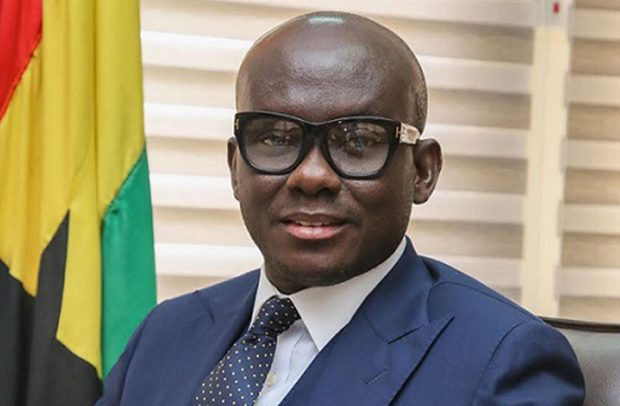Godfred Yeboah Dame
The Attorney General and Minister for Justice, Godfred Yeboah Dame, has described as “fundamentally incorrect constitutional theories bandied about by the Centre for Democratic Development (CDD-Ghana)” in its criticism of a letter advising the Auditor-General in the handling of audit reports.
The Attorney General last week wrote to the Auditor-General advising him to stop publishing findings of his reports on the website of the Audit Service prior to its consideration by Parliament or a committee of it.
Mr. Dame described as premature, the decision by the Auditor-General to publish its report of the special audit of government’s COIVD-19 transactions on its website without the fulfilment of constitutional mandates.
But CDD-Ghana, in a press statement, criticised the AG’s advice and described is it as “a domineering superior posture that the Akufo-Addo administration has adopted in dealing with the constitutionally independent office of the Auditor-General.”
CDD-Ghana perceived the Attorney General’s letter as an effort to “undermine the independence of the office of the Auditor-General and other independent constitutional bodies.”
A vice-chair of the Board of CDD-Ghana, speaking on Accra-based Joy FM, also indicated that the Auditor-General is not part of the Audit Service of Ghana but a separate creation.
The Attorney General and Minister for Justice, in a response said, he “considers it imperative to correct the palpable errors contained in and implied by the press release of CDD-Ghana, as same distort the relationship between the Attorney General and the Auditor-General in the constitutional architecture of the Republic and have far-reaching implications for Ghana’s record in rooting out corruption.”
He cited Article 189(2) of the 1992 Constitution and maintained that contrary to the strange view of CDD-Ghana, the letter and spirit of laws governing the work of the Auditor-General make him part of the Audit Service of Ghana and, therefore, a regular member of the Public Services of Ghana to whom the Attorney General can give advice pursuant to his mandate under Article 88 of the Constitution.
He said Section 2 of the Audit Service Act, 2000 (Act 584) lays the issue to rest when it lists the Auditor-General as the first member of the Audit Service in these terms: “The members of the Audit Service are (a) the Auditor-General, and (b) the other persons employed in the Service.”
“It is thus clear that the propositions of CDD-Ghana and its board members can only result from an inadequate reading of the laws of Ghana, including the Constitution and the Audit Service Act,” Mr. Dame fired.
He further points out that a proper reading of the constitution, especially the provisions on the Public Services of Ghana, leads to the inescapable conclusion that the Attorney General is fully vested with the constitutional function of giving legal advice to all the Public Services specifically listed in Article 190(1) of the Constitution, including the Audit Service, and such other Public Services as will be established by law.
He said “it is incomprehensible and rather illogical how an assertion may be made that the Attorney General has no capacity to render legal advice to the Auditor-General. Such an assertion can only be as a result of a simplistic and limited view of relevant provisions of the Constitution of Ghana.”
Mr. Dame further pointed out that the functional independence of the Auditor-General under Article 187(7)(a) of the Constitution does not confer immunity from legal advice, as legal advice to a constitutional body cannot under any circumstance be construed to amount to interference with the performance of its constitutional functions.
The Attorney General also indicated that the imputation conveyed by CDD-Ghana that Parliament does not have power to deliberate on findings contained in a report of the Auditor-General violates the letter and spirit of Article 187(6) of the Constitution, which provides that “Parliament shall debate the report of the Auditor-General and appoint where necessary, in the public interest, a committee to deal with any matters arising from it.”
“The Office of the Attorney General and Ministry of Justice implores civil society organisations to carefully examine the position of Ghana law on a relevant matter before raising unjustified public alarm over a violation by the Attorney General or any public institution at all. The default in doing so affects the image of the nation in the eyes of the international community, particularly its anti-corruption ratings,” Mr. Dame added.
BY Gibril Abdul Razak

